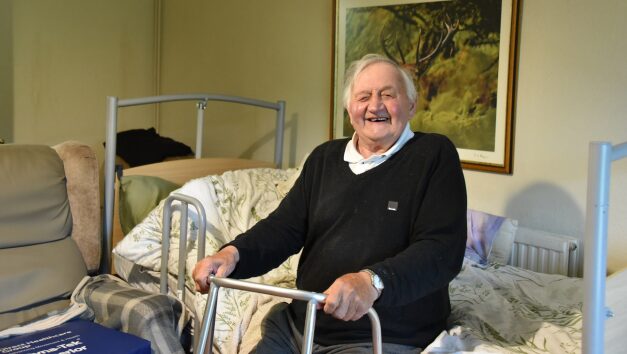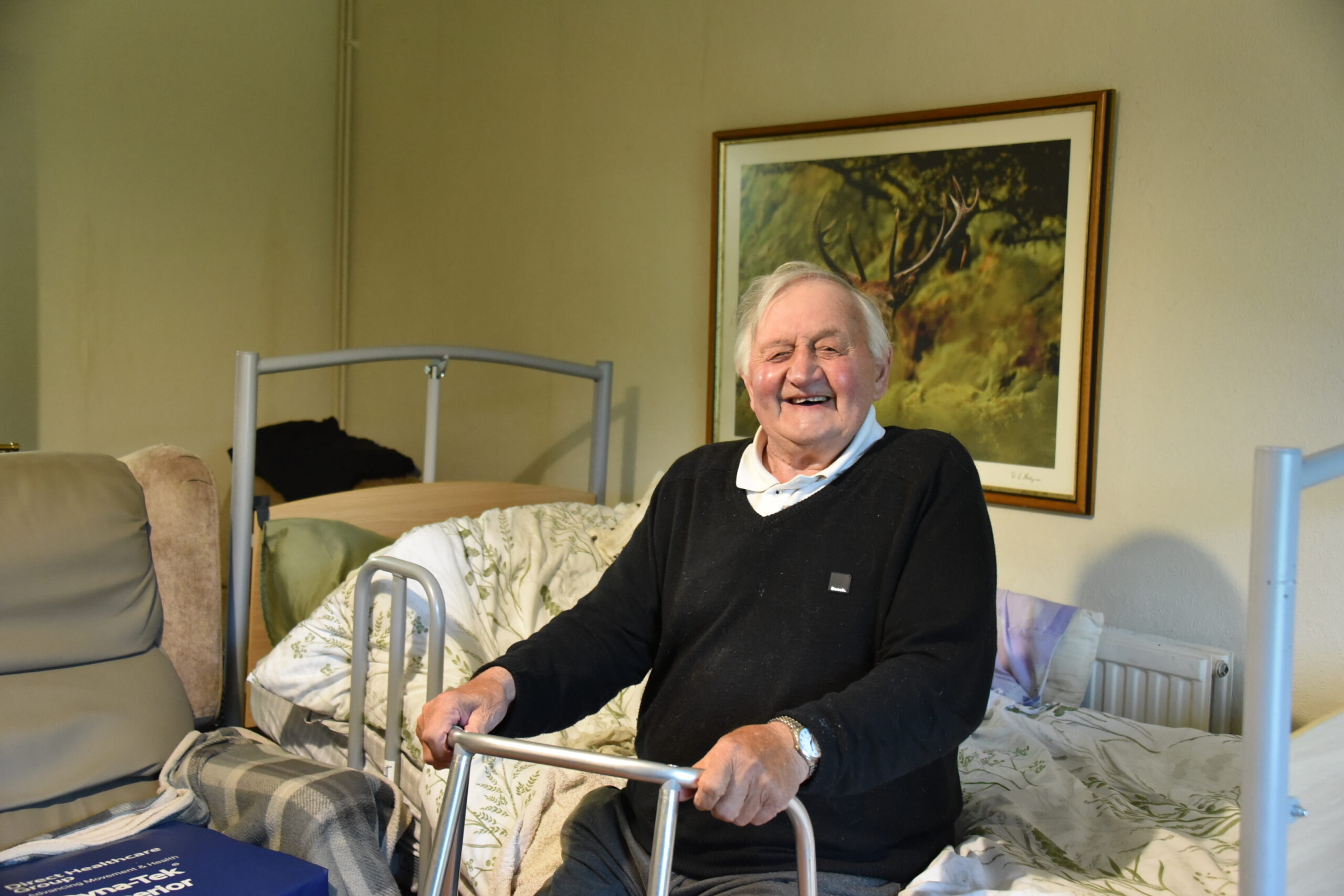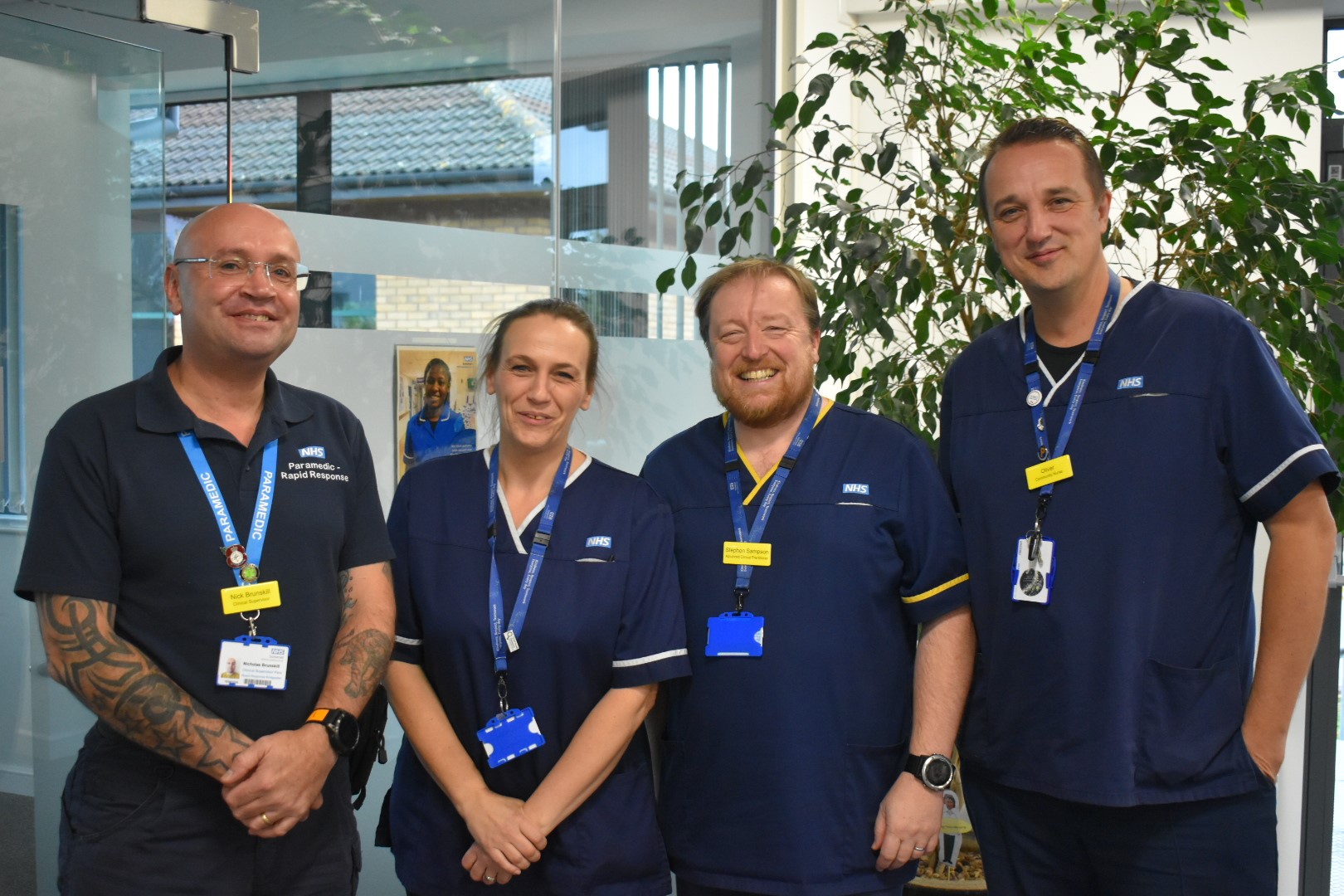
Spotlight
How our Hospital@Home team helped Mr Baker recover from sepsis

Mr Colin Baker is 85, a retired farmer, owner of nine cats, and husband of 57 years to his wife Mary. His family were worried when he became unwell overnight. He felt confused, hot, drowsy and couldn’t stand out of his chair. When they rang 999, South Western Ambulance Service (SWASFT) sent out the rapid response team to assess Mr Baker. They found his temperature high and his breathing and heart rate fast, indicating that there was an underlying problem.
His family knew from experience that Mr Baker did not want to go to hospital, his nearest being Weston-super-Mare. He had been admitted several months prior and had been upset to leave the farm. Together, they agreed to refer Mr Baker to Hospital@Home, and within an hour, Dr Chris Cawston, consultant, and Steve Sampson, trainee advanced clinical practitioner visited Colin at home.
Steve explains “When we arrived, we did point of care testing to check for inflammation which can indicate infection, injury, or chronic disease and found it to be raised. Colin’s temperature was 39.2C and he looked flushed. This was strongly suggestive of an infection, though the source was not initially obvious. We decided to give Colin IV antibiotics and IV fluids and took samples to test for a chest or urine infection.
"Prior to leaving Colin was beginning to look and feel better and we talked through his treatment plan. Later that day the district nurse went back in and gave Colin some more IV fluids.
“The next day Dr Alex Picts and myself reviewed Colin again and this time he was feeling better but not quite his normal self. His temperature was better, and although he was still a little confused at times, he had improved. We decided to give a further dose of the IV antibiotics.
“When we visited again on the third day, Colin was feeling a lot better. He was looking and feeling much better and was asking us when he could get back out on his farm to see his animals. His wife said that his appetite was now back to normal. Colin was back to his joking self. We decided to switch his antibiotics to an oral antibiotic. His sputum specimen had failed to grow anything while his urine had grown something, he failed to show any other signs of a urinary infection. Bloods taken showed that his inflammatory markers had improved significantly.”
Over the next few days Colin was monitored by rapid response who also assessed his mobility and home situation. He was monitored remotely, which includes a variety of methods, tailored to each patient, including telephone or video consultations, or in some cases remote digital monitoring devices.
On the final contact over the phone, Steve found that “when we tried to talk to Colin, we heard from his wife that that he was already out on his mobility scooter supervising the haymaking!”
Angie, district nurse, with Mr Baker:
Over seven days, Mr Baker was able to recover in the comfort of his own home, enjoying his independence and normal routine without being separated from his family. The family felt well informed throughout and knew what to do if Mr Baker began to feel worse. He was happy to be able to stay at home and pleased that he avoided an expensive taxi home from hospital again, and was also able to keep an eye on the farm.
Read more about Hospital @ Home
The Hospital @ Home team, photographer with members of rapid response and district nurses who help support patients at home:



